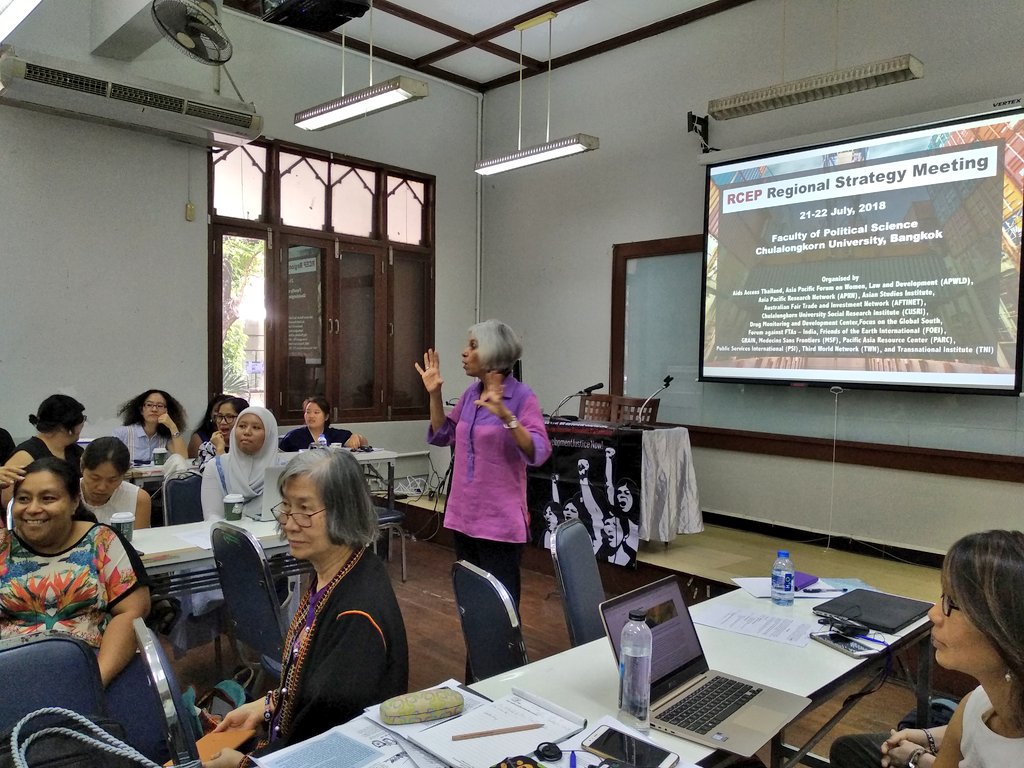As Thailand prepares to host the 23rd round of negotiations of the mega free trade agreement (FTA), the Regional Comprehensive Economic Partnership (RCEP), people’s movements across Asia held a two-day RCEP regional strategy meeting.
Trade unions, peasants’ movements, women’s networks and civil society organizations from Cambodia, Thailand, India, Japan, South Korea, Bangladesh, Myanmar and Laos met in Bangkok to discuss the implication of RCEP on various sectors. Activists argued that the Asia’s largest free trade agreement involving 16 countries would adversely impact the rights of workers and farmers, and hamper access to essential services and medicines, especially in poorer countries. Yesterday, a report was released by a number of organizations critiquing the deal and the way it has been negotiated.
Sanya Reid Smith a legal advisor and senior researcher at the Third World Network, noted that though its is generally understood that the agreement is China’s answer to United States (US)-led FTAs, “it contains texts pushed by rich countries like Japan and Singapore which will adversely affect poor and least developed countries in the region.”
The RCEP process was officially initiated in 2012 at the ASEAN meeting in Cambodia, and the 10 ASEAN member countries, along with six Asia Pacific countries, are expected to sign it during the ASEAN summit in Singapore in November 2018. RCEP is expected to replace the now defunct Trans Pacific Partnership.
One of the major issues raised by the organizations was the the utmost secrecy surrounding the RCEP negotiations. Smith said that none of the texts of the negotiation had been made public and there were few details about the chapters of various provisions.
Activists also raised concerns about the provision of the Investor state dispute Settlement (ISDS) that would enable foreign corporations to sue the host country’s government in an international arbitration tribunal. The clause would be devastating for poor and the least developed countries in the region as the arbitration cost, as per the estimate by the Asia Pacific Forum on Women, Law and Development, can vary from US$ 8 million to US$ 50 million per dispute.
Apart from accelerating the process of privatization of essential public services by diluting the local and national governments’ decision-making powers and increasing corporate access to public services, the agreement will lead to an increasing exploitation of the labor workforce. Organizations noted that agreement would deal a blow to agricultural subsidies and small and medium scale producers, who would face unfair competition from highly subsidized producers in Japan, New Zealand and Australia.
Speaking about the global trade war started by United States President Donald Trump, Joseph P from the Focus on The Global South said that civil society and people’s organizations were “caught off guard by this.”
“The left and progressive have to articulate their position better; otherwise right-wing populists like Donald Trump will tap into the frustrations of the disenfranchised,” Joseph noted.





